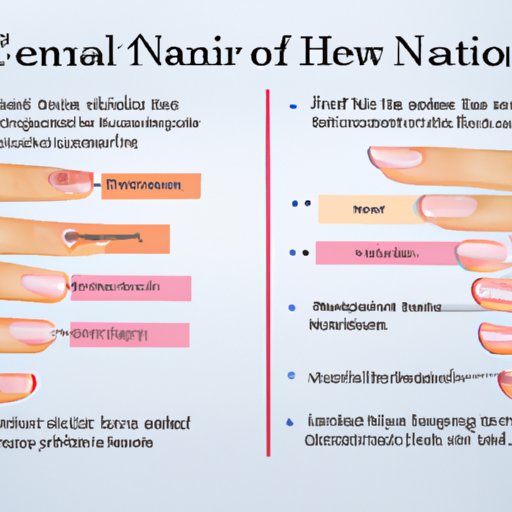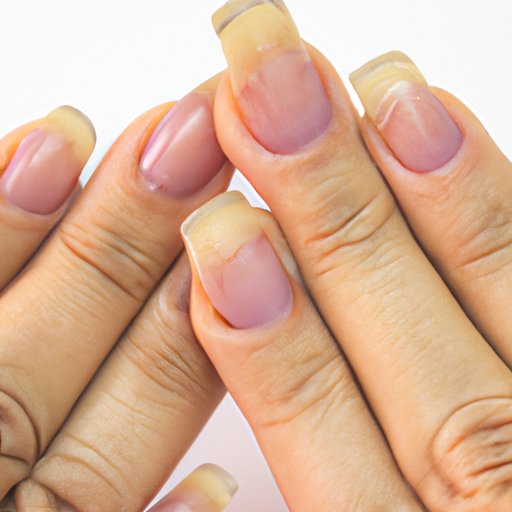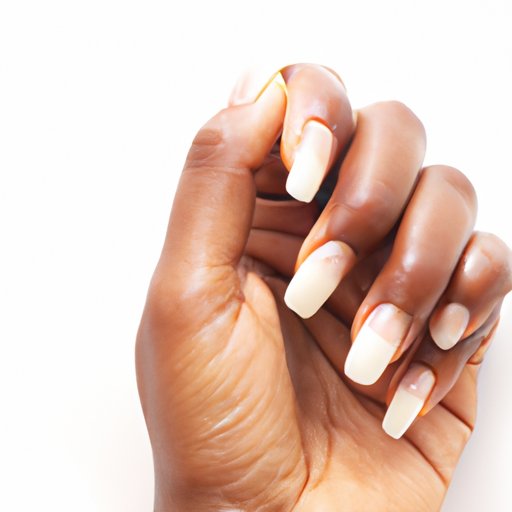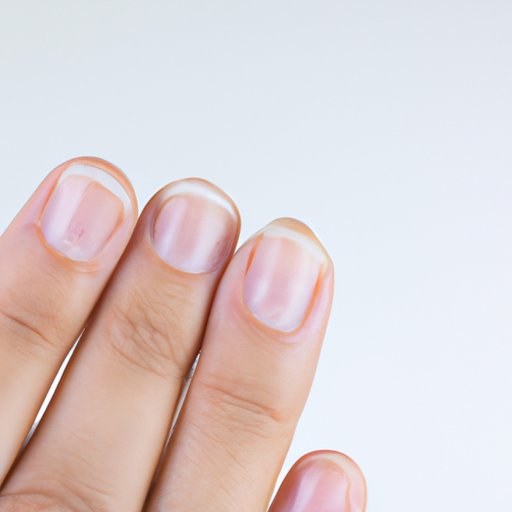Introduction
The condition of your nails can say a lot about your overall health. While it’s easy to overlook them, paying attention to the health of your nails can help identify underlying medical conditions or nutritional deficiencies. In this article, we’ll explore what your nails may be telling you about your health and how to maintain healthy nails.

Examining the Relationship between Nail Health and Overall Health
Your nails are made up of layers of keratin, which is a protein that is also found in your hair and skin. It’s normal for your nails to change over time, but if you notice any changes in color, texture, or growth pattern, it could be a sign of an underlying medical condition. Paying attention to your nails can help alert you to potential health issues before they become serious.
Changes in your nails can be caused by a variety of factors, including genetics, age, lifestyle, and nutrition. Nail health can be an indicator of general health, so it’s important to pay attention to any changes and seek medical advice when needed.

Common Nail Problems and What They May Indicate About Your Health
Here are some of the most common nail problems and what they may indicate about your health:
Brittle, cracked or peeling nails
Brittle, cracked, or peeling nails can be a sign of dehydration, vitamin deficiencies, or other nutrient deficiencies. It can also be a sign of an underlying medical condition such as thyroid disease, psoriasis, or diabetes.
Discolored nails
Discolored nails can be a sign of infection or an underlying medical condition. Yellow nails can indicate respiratory problems such as bronchitis, while white spots on nails can be a sign of a zinc deficiency.
Thickened nails
Thickened nails can be caused by a fungal infection or psoriasis. It can also be a sign of anemia, kidney disease, or liver disease.
White spots
White spots on nails can be caused by injury or a zinc deficiency. It can also be a sign of a fungal infection or psoriasis.
Vertical ridges
Vertical ridges on nails are usually a sign of aging, but they can also be caused by a lack of vitamins and minerals such as calcium and iron.
The Role of Nutrition in Promoting Healthy Nails
Nutrition plays an important role in promoting healthy nails. Eating a balanced diet that includes plenty of fruits, vegetables, proteins, and healthy fats can help promote strong and healthy nails. Vitamins and minerals that are essential for healthy nails include Vitamin A, Biotin, Vitamin C, Vitamin D, Iron, and Zinc. Foods that are high in these nutrients include nuts, seeds, legumes, eggs, fish, and dark leafy greens.
Understanding Fingernail Abnormalities: Signs of an Underlying Health Problem?
If you notice any changes in your nails, such as discoloration, thickening, or ridges, it’s important to seek medical advice. Common diseases and conditions associated with nail abnormalities include diabetes, psoriasis, thyroid disease, anemia, and fungal infections. If you have any concerns, it’s best to speak to your doctor or dermatologist for further advice.

How to Keep Your Nails Healthy and Strong
In addition to eating a balanced diet, there are a few simple steps you can take to keep your nails healthy and strong. Proper hygiene habits such as washing your hands often and using moisturizer after washing can help prevent nail infections. Regular trimming and filing can help keep nails looking neat and prevent them from breaking. And when doing activities such as gardening or cleaning, wearing protective gloves can help protect your nails from damage.
Conclusion
Paying attention to your nails can help you identify any potential health issues before they become serious. Changes in your nails can indicate a variety of medical conditions or nutritional deficiencies. Eating a balanced diet that includes plenty of vitamins and minerals can help promote healthy nails. And following proper hygiene habits, regular trimming and filing, and wearing protective gloves when necessary can help keep your nails healthy and strong. Taking care of your nails is an important part of maintaining overall health.
(Note: Is this article not meeting your expectations? Do you have knowledge or insights to share? Unlock new opportunities and expand your reach by joining our authors team. Click Registration to join us and share your expertise with our readers.)
